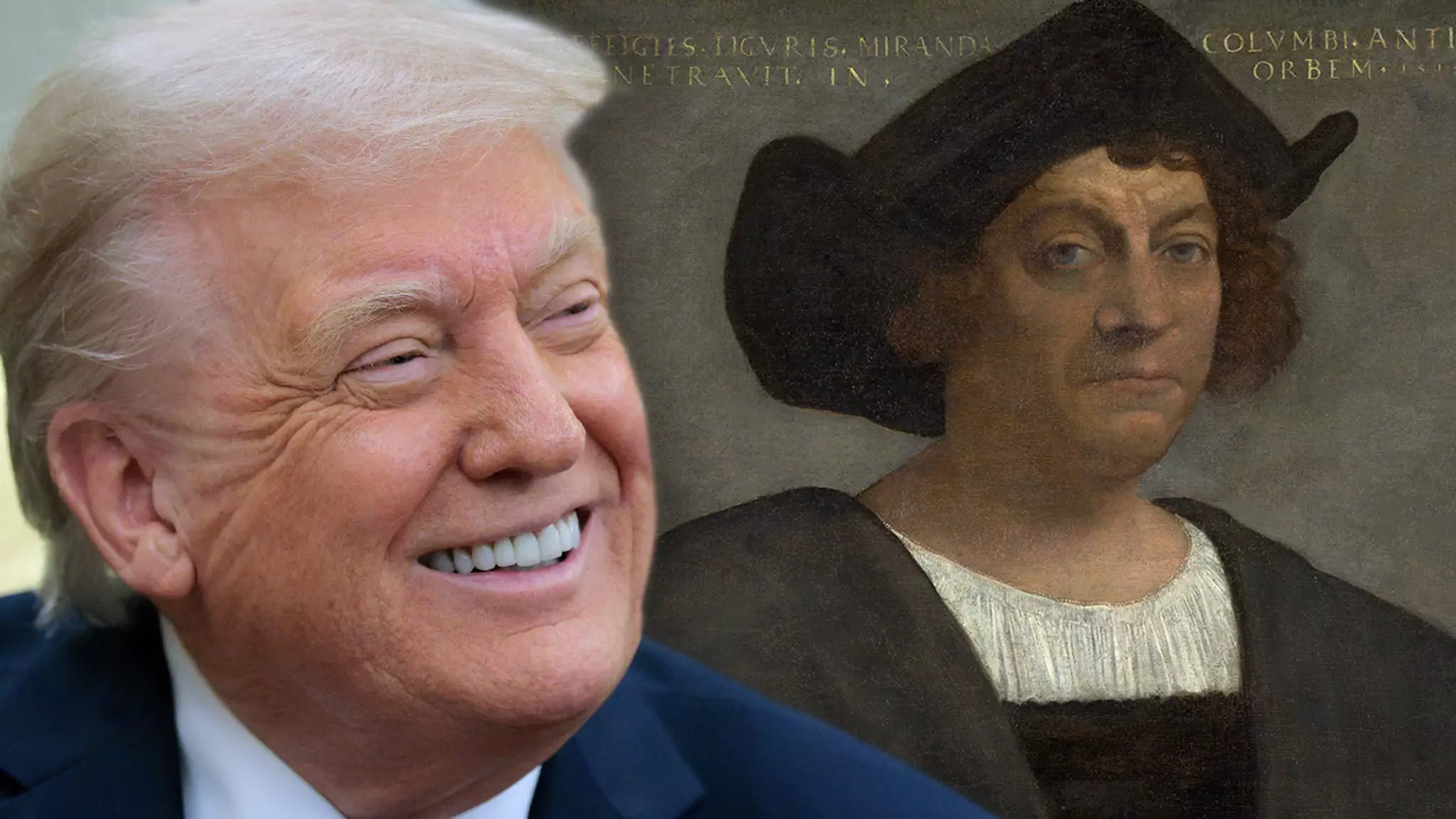In a fervent declaration on Truth Social, Donald Trump is positioning himself as the defender of Christopher Columbus and, by extension, the Italian American community. The former President rails against what he perceives as an assault on Columbus’ legacy launched by Democrats and activists who have critiqued the explorer’s role in the colonization of the Americas. Trump’s proclamation to restore Columbus Day as a day of reverence is not just a nostalgic nod to history; it reflects a calculated maneuver aimed at rallying his political base while thrusting the debate surrounding historical figures into the current cultural arena.
Attacking the Left: A Political Strategy
By framing the removal of Columbus’ statues and the renaming of Columbus Day to Indigenous Peoples’ Day as a coordinated attack by the “Left,” Trump ingeniously taps into a narrative that resonates with his supporters. He invokes a sense of victimhood among Italian Americans, positioning them as disenfranchised and overlooked in the modern socio-political landscape. His rhetoric suggests that attacks on historical figures are not simply critiques of the past but rather assaults on cultural identity itself. This manufactured outrage serves as a rallying cry, energizing his base while simultaneously drawing a stark line between his followers and those who advocate for a more critical appraisal of history.
The Irony of Historical Narratives
Yet, underneath this passionate defense of Columbus lies a troubling irony. While Trump argues for the restoration of Columbus as a cultural icon, he conveniently sidesteps the complex, and often violent, legacy that surrounds the figure. Critics argue that his fervor is indicative of a broader reluctance to grapple with the darker chapters of history, preferring instead to herald a sanitized version that suits a particular narrative. The sanitized portrayal of Columbus does not capture the realities faced by Indigenous peoples, and ignoring these historical inequities raises ethical concerns about the glorification of colonial figures at the expense of marginalized voices.
The Mechanics of Cultural Policymaking
As he promises to bring Columbus Day “back from the ashes,” Trump’s assertion raises a crucial question about the feasibility of such a revival in jurisdictions that have already made the decision to honor Indigenous Peoples’ Day instead. Although Columbus Day remains a federal holiday, the local adaptations illustrate a significant cultural shift. Trump’s planned restoration appears to lack concrete policy mechanics and instead serves as a symbolic gesture aimed at gaining traction in the ongoing cultural wars. His strategy hinges more on arousing sentiment among his support base than on fostering substantive dialogue about historical accountability.
Anticipating the Pageantry
With Columbus Day approaching, one can expect Trump to leverage the holiday to showcase his commitment to reviving what he calls a disregarded legacy. From parades to events, the pageantry surrounding this revitalized Columbus Day may serve as both a celebration and a spectacle, further illustrating the complexities of interpreting history in our current socio-political climate. For many, Trump’s approach raises questions about the nature of reverence, heritage, and whose narratives are prioritized in public celebrations. It is a stark reminder that the fight over history is not merely about one figure, but rather an ongoing struggle over identity, memory, and power in the American landscape.

Leave a Reply